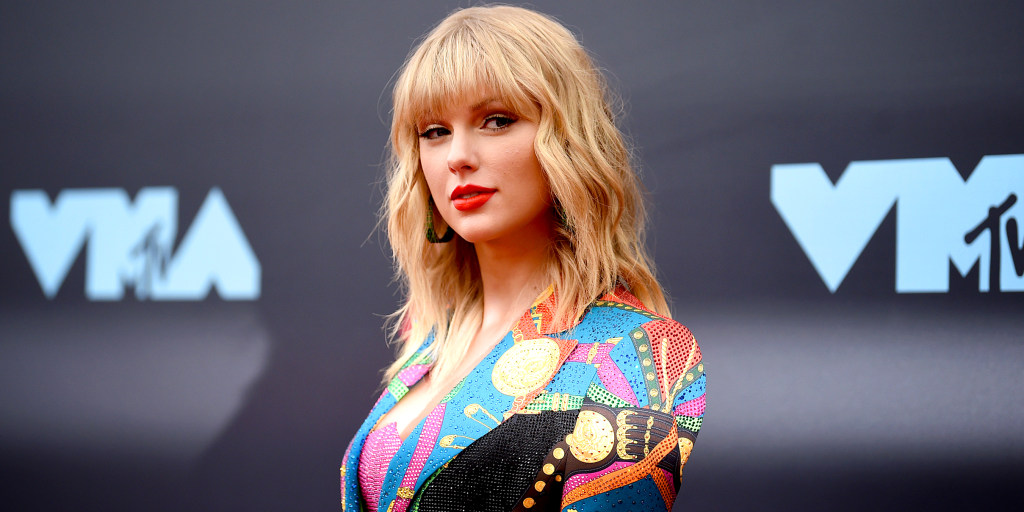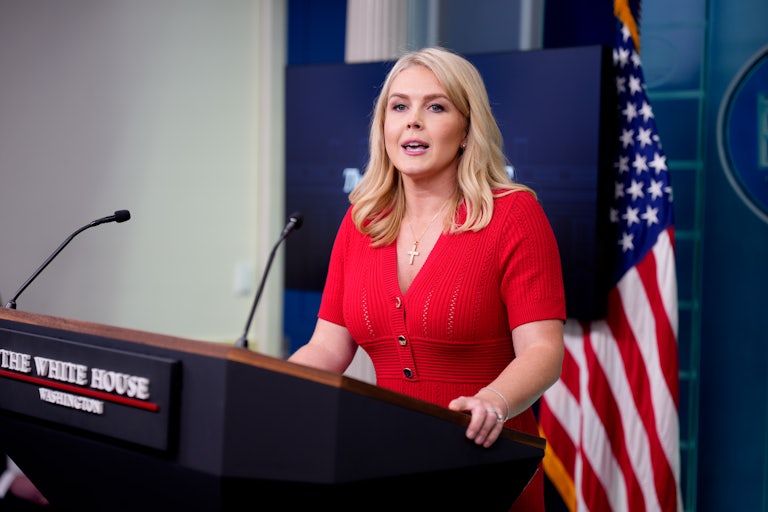In the polarized landscape of American politics, few figures are as polarizing as they are unifying. And while the list of public figures who draw both adoration and contempt is long, it’s rare for a global pop sensation to be on it. But that’s exactly where Taylor Swift finds herself, not just as a cultural icon, but as a political target. The latest twist in this ongoing drama came not from a stadium concert or a Grammy stage, but from a seemingly routine White House press briefing, where a single, seemingly trivial question about a social media post revealed a much deeper, more calculated political strategy.

The question itself was simple enough. A reporter, looking for a reaction to one of Donald Trump’s recent social media posts, asked White House Press Secretary Karoline Leavitt about his comments regarding Taylor Swift. The post in question was a characteristic jab, questioning Swift’s “hotness” since Trump had declared his “hate” for her. But what followed was a telling moment of political theater. Leavitt, a veteran of Trump’s campaigns and now a fixture in his administration, chuckled before giving her response. “Look, he is speaking about Taylor Swift’s political views and how perhaps it has impacted the support of the American public for her work. And I will leave it at that.”
Her answer, delivered with a dismissive laugh, was an artful piece of political framing. It wasn’t a defense of the post’s content, but a reclassification of it. By framing Trump’s personal attack as a critique of Swift’s political influence, Leavitt attempted to give the comment a veneer of legitimacy. It was a classic move, one that sidesteps the crude and personal nature of the remark and recasts it as a high-minded debate about the pop star’s public sway. But for anyone who has followed the years-long tension between Swift and the political right, it was a moment that spoke volumes.
This isn’t just about a single social media post. It’s the latest chapter in a political feud that has been simmering for years, one that began when Swift, once famously apolitical, decided to use her massive platform to speak out. Her first significant foray into politics came in 2018 when she endorsed a Democratic candidate in her home state of Tennessee. The move was met with immediate backlash from conservatives, and from that point forward, a line was drawn. The criticism grew louder in 2020 and 2024 as Swift became an increasingly vocal advocate for the Democratic party, endorsing candidates and urging her millions of followers to register to vote. Each time, she was met with attacks from Trump and his allies, who painted her as a “woke” celebrity, out of touch with her fans.
The White House’s response to the recent post is part of a larger, coordinated effort to neutralize the “Taylor Swift effect.” Her endorsements have a tangible impact. Her social media posts on voter registration have driven massive surges in sign-ups, and her support for candidates has the potential to sway undecided voters, particularly young people who are disillusioned with traditional politics. For a political party that relies on a loyal and energized base, a figure who can single-handedly mobilize millions of voters is a threat. When Leavitt laughed and dismissed the comments as being about her “political views,” she was trying to diminish that power, to suggest that Swift’s influence is not as significant as it seems.
The strategy is a double-edged sword. On one hand, it keeps the conversation about Swift’s political leanings, which can energize some of the conservative base who view her as a cultural elite. On the other hand, it also draws more attention to the very thing they fear: her political power. By constantly bringing up Swift, Trump and his allies are inadvertently amplifying her influence and reminding a new generation of voters that their favorite artist is on the other side of the political aisle. It’s a risk, but one they seem willing to take in their ongoing battle for the cultural zeitgeist.

What’s perhaps most telling is Taylor Swift’s silence. While the political world debates her every move and motive, she has consistently refused to engage in the public back-and-forth. She has not responded to Trump’s personal attacks, nor has she directly addressed the White House’s comments. This silence is not a sign of weakness or apathy; it’s a strategic move. By not dignifying the attacks with a response, she denies her critics the public confrontation they seem to crave. Instead, she allows her actions—her support for candidates, her calls for voter registration—to speak for themselves. In an age of endless digital noise, her silence is a powerful statement.
This saga is a fascinating case study in the intersection of celebrity, media, and politics. It’s a battle not just for votes, but for the narrative. Trump and his allies seek to delegitimize a pop star’s influence by casting her as an out-of-touch liberal. Swift and her supporters, meanwhile, see her as a powerful voice for change and a symbol of a younger generation’s political awakening. The White House, by taking a position on a celebrity’s social media post, has officially pulled the highest office in the land into the fray.
As the 2024 election approaches, the drama is likely to continue. Taylor Swift will continue to have a massive platform, and she will likely continue to use it to advocate for her beliefs. Donald Trump will continue to use his social media to attack those who oppose him, regardless of whether they are politicians or pop stars. And the White House will continue to try and manage the fallout, all while the American public watches a new kind of political drama unfold. It’s a story with a simple premise: in modern America, even the world’s biggest pop star can be transformed from an entertainer into a political lightning rod, all because she dared to speak her mind. The question now is not who will win the argument, but what the consequences will be for a society where politics and pop culture have become almost indistinguishable.
Leave a Reply